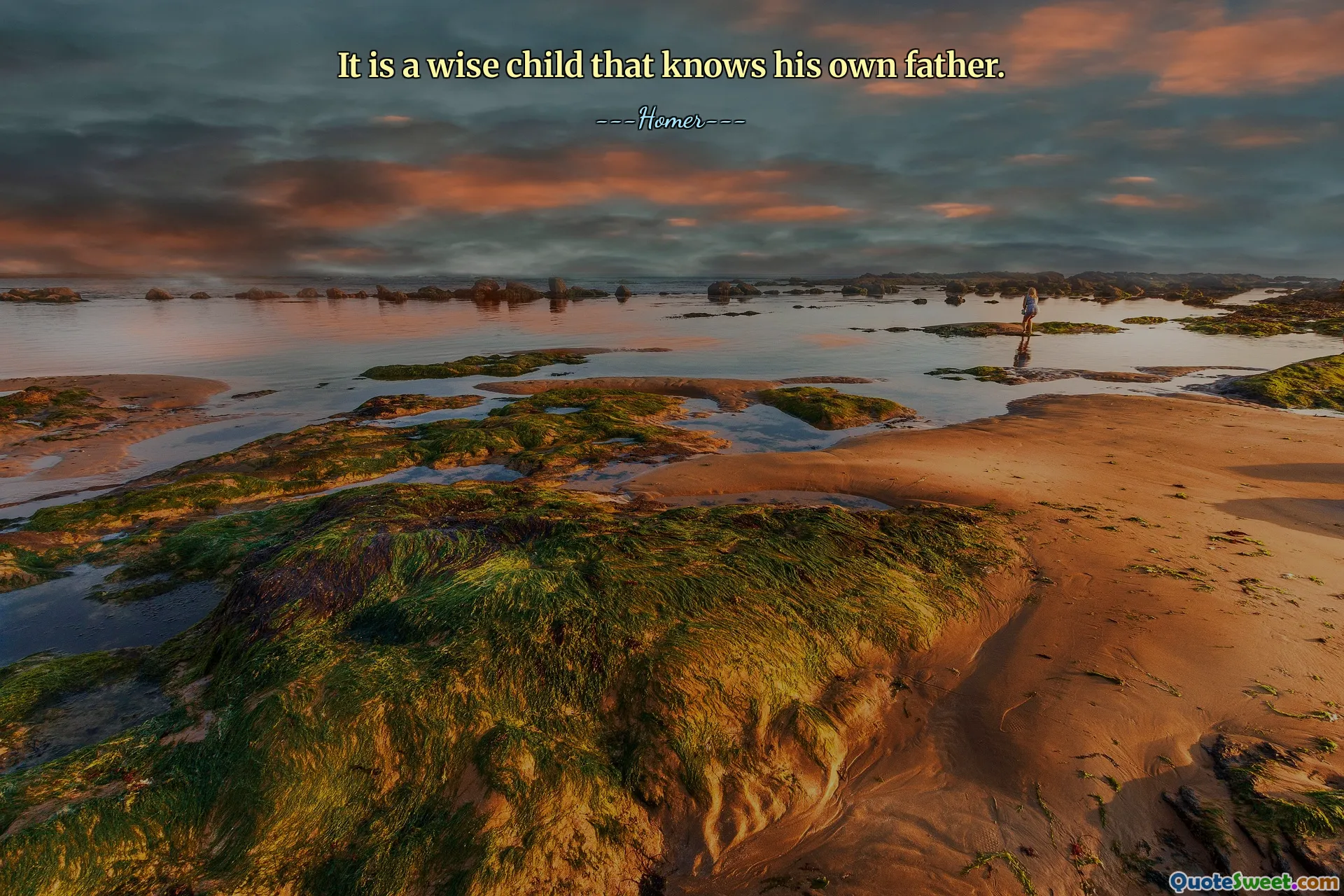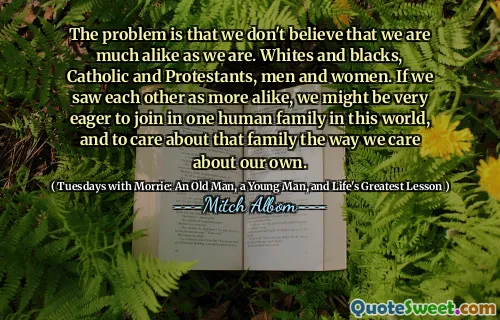
It is a wise child that knows his own father.
**Recognizing one's roots and understanding the significance of family connection is a timeless theme captured in this quote. The wisdom of a child knowing their father goes beyond mere identification; it signifies an awareness of origin, heritage, and the values passed down through generations. In many cultures, the relationship between a child and their father embodies not only familial bonds but also social stability, moral guidance, and identity. When a child recognizes his father, it reflects a comprehension of the lineage that shapes their personality, beliefs, and worldview. This awareness can cultivate a sense of belonging and purpose, grounding individuals in their cultural and familial traditions. Conversely, ignorance of one’s origins may lead to feelings of alienation and disconnection from one's history. The quote underscores the importance of understanding and appreciating one's roots as a foundation for personal growth and societal cohesion. It also prompts reflection on the roles of guidance, mentorship, and the transmission of wisdom from one generation to another. In a broader context, it suggests that true wisdom involves humility and recognition of where one comes from, encouraging individuals to honor their heritage. Moreover, such recognition can foster respect and gratitude within families, strengthening bonds and promoting a sense of community. Ultimately, knowing one’s father is symbolic of knowing oneself and embracing one’s identity, which is fundamental for leading a meaningful and authentic life. This insight affirms that wisdom involves appreciation of and attachment to one's origins, serving as a guiding principle for personal development. ---Homer---











